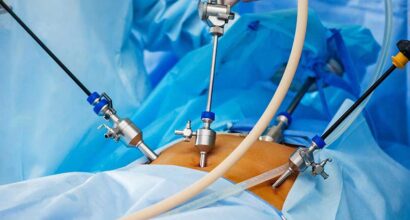Antisepsis, anesthesia, and minimal access surgery are the three advances in the field of surgery in this century. Laparoscopic surgery also referred to as minimal access surgery or keyhole surgery describes the performance of surgical procedures with the assistance of a video camera, telescope, and several thin instruments. The surgery is performed by a specialist Laparoscopic Surgeon in Delhi NCR.
- Home
- Meet Dr Tarun Mittal
- Laparoscopic
- Treatments
- Gall Bladder
- Hernia
- Appendectomy
- Role of Intestine
- Sleeve Gastrectomy
- Gastric Bypass
- Piles Treatment
- Video-assisted anal fistula treatment (VAAFT)
- Endoscopic Pilonidal Sinus Treatment (EPSiT)
- Surgery of the Spleen, Adrenal Gland, and Pancreas
- Surgery – Candidate For Surgery , Types of Surgery
- Gastrointestinal
- Robotic Surgery
- Blog
- PR
- Contact Us


